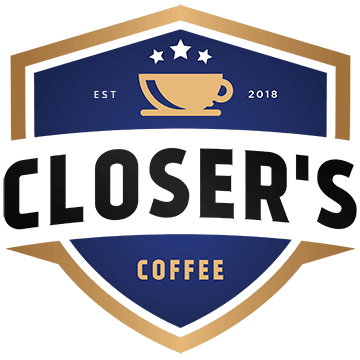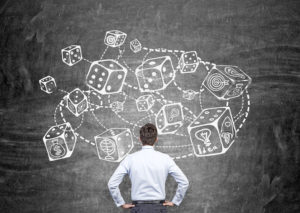Millennial this. Gen Z that. The next generation is taking over the workforce. By 2020, 50% of the workforce will be made up of millennials and there’s nothing you can do about it. As you may have read in previous articles on Closers, your sales team should be preparing for Millennial burnout or how to coach millennials by recognizing their “individuality.” While it’s important to note high level personality traits that attribute to your new, out of college hire’s performance, I wanted to dive deeper into one trait that we can impact through data: competitiveness.
In 2014, a Reuters study gathered that about half of Millennials like being noticed and a third held competitiveness as a catalyst for better results, overworking collaboratively. Thus has stemmed the trend of gamifying well… everything. From sales and operations to education and beyond, online platforms are noting this adjustment as critical to the long-form engagement of their product, considering their shifting user base.
We saw such a dramatic change in how sales reps were interacting in the field, that we created an entire whitepaper (The Ultimate Guide To Gamifying Your Sales Team) around sales gamification and interviewed over 100 sales leaders. The main conclusion: teams with reps ranging from 21-35 years of age were noticing higher levels of success within their sales teams. From employing Mario Kart and March Madness principals, these sales teams created ways to drive behaviors and draw out the competitive tendencies mentioned above. You can read the entire whitepaper here.
Taking a step back, let’s note some factors that have attributed to these tendencies among this age group.
The Pursuit of Perfection
I recently heard of the “Zuckerberg Effect” which refers to the new model of success for the youth that isn’t necessarily defined by a traditional career in law, medicine, or the rise to fame in entertainment. It’s a newfound aspiration for impact and fulfillment that has been said to stem from multiple avenues and displayed in the form of billionaire college dropouts who craved innovation. The pursuit of perfection is leading to many mental hardships for these generations but is also creating opportunities for employers to capitalize and thus incentivize on more areas than just financial.
Digital revolution
As digital natives, Millennials and Gen Z have grown up with technology as an ally. What that also means is that technology has ignited a new level of competition. Not only competition in games like Candy Crush but a general competition for attention. Each post, each interaction is yet another activity driving these tendencies. In sales, you may think that this concept only applies to improve certain attributes, however, this digs deeper into fulfilling one aspect of their lives that you just can’t take away and retaining them on your team.
Appreciation of instant feedback
Due to the previous and the overall pace of media, individuals that grew up engulfed in the internet don’t typically have the same patience or attention as older generations. For this last reason, gamification is a multi-faceted solution that adheres to both personal interests and upbringings. By digitizing sales goals and progress and relaying both one’s and one’s colleague’s achievements, you can access the same immediate dopamine that is found through Instagram and Twitter likes… except well.. This use case may be slightly more meaningful since it’s tied to career progress.
How to Capitalize
Ask Questions
90% of Millennials want to connect their abilities to a cause. Think about this statement for a minute. You may immediately think that if your company isn’t directly in social impact, you’re not appealing to your millennial employees. However, this statement is just about asking the right questions to determine the purpose and next steps. Any base, commission, or bonus your reps earn can be structured to support those goals. Your ability to give time off or half days may also contribute to those goals in some ways. Don’t simply assume, they are in it to make more money one day than they did the last. Align sales gamification efforts with an overall purpose.
Experiment
Whatever you do, don’t think gamification is a one-size-fits-all application. It is meant to be tested and manipulated to appeal to different subsets of reps. It’s also not very easy to perfect the first time around. Reactions may be skeptical or your team may not be on the same wavelength you are on after reading this paper. Mix it up by testing different metrics to reward. You will never fully understand the implications until you open your leadership style up to have fun with it too.
If any of this sounds like something you can implement with your sales team, you should be actively thinking about how to capitalize on generational traits instead of constantly playing the “back in my day” card. This shift isn’t just changing the workplace culture, it’s changing how we work. Based on tons of supporting evidence, it’s becoming clearer that companies should be employing “sales gamification” programs moving into the future adjusting to changing waves of the next generation of sales reps.




